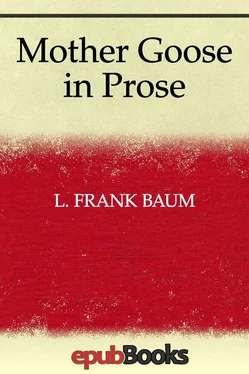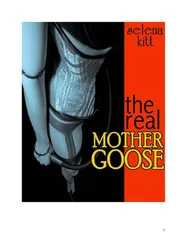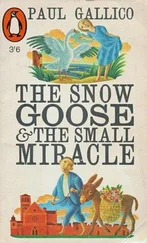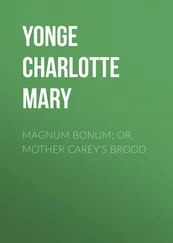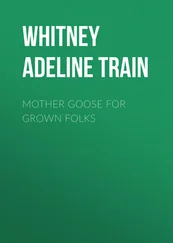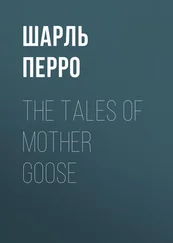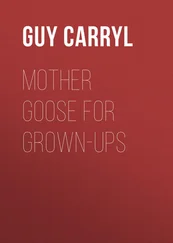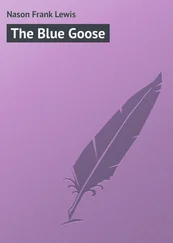"What do those people who have n't any sheep do for clothes?" asked the lamb.
"I 'm sure I do n't know. They must nearly freeze in the winter. Perhaps the ram can tell us."
But the ram was still angry, and refused to say anything, so the sheep stopped talking and began to scatter over the pasture and eat the tender, new grass.
By and by the Black Sheep wandered near the lane, and looking up, saw the little boy watching it through the bars.
"Good morning, Black Sheep," said the boy; "why do you look so funny this morning?"
"They have cut off my wool," answered the sheep.
"What will they do with it, Black Sheep?" enquired the little boy.
"They will make coats of it, to keep themselves warm."
"I wish I had some wool," said the boy," for I need a new coat very badly, and mamma is so poor she cannot buy me one."
"That is too bad," replied the Black Sheep; "but I shall have more wool by and by, and then I will give you a bagful to make a new coat from."
"Will you really?" asked the boy, looking very much pleased.
"Indeed I will," answered the sheep, "for you are always kind and have a pleasant word for me. So you watch until my wool grows again, and then you shall have your share of it."
"Oh, thank you!" said the boy, and he ran away to tell his mother what the Black Sheep had said.
When the farmer came into the field again the Black Sheep said to him, "Master, how many bags of wool did you cut from my back?"
"Two bags full," replied the farmer; "and it was very nice wool indeed."
"If I grow three bags full the next time, may I have one bag for myself?" asked the sheep.
"Why, what could you do with a bag of wool?" questioned the farmer.
"I want to give it to the little boy that lives in the lane. He is very poor and needs a new coat."
"Very well," answered the master; "if you can grow three bags full I will give one to the little boy."
So the Black Sheep began to grow wool, and tried in every way to grow the finest and heaviest fleece in all the flock. She always lay in the sunniest part of the pastures, and drank from the clearest part of the brook, and ate only the young and juicy shoots of grass and the tenderest of the sheep–sorrel. And each day the little boy came to the bars and looked at the sheep and enquired how the wool was growing.
"I am getting along finely," the Black Sheep would answer, "for not one sheep in the pasture has so much wool as I have grown already."
"Can I do anything to help you?" asked the little boy.
"Not that I think of," replied the sheep, "unless you could get me a little salt. I believe salt helps the wool to grow."
So the boy ran to the house and begged his mother for a handful of salt, and then he came back to the bars, where the Black Sheep licked it out of his hand.
Day by day the wool on the sheep grew longer and longer, and even the old ram noticed it and said, "You are foolish to grow so much wool, for the farmer will cut it all off, and it will do you no good. Now I am growing just as little as possible, for since he steals what I have I am determined he shall get very little wool from my back."
The Black Sheep did not reply to this, for she thought the old ram very ill–tempered and selfish, and believed he was doing wrong not to grow more wool. Finally the time came to shear the sheep again, and the farmer and his man came into the pasture to look at them, and were surprised to see what a fine, big fleece the Black Sheep had grown.
"There will be three bagsful at the least," said the master, "and I will keep my promise and give one to the little boy in the lane. But, my goodness! how scraggly and poor the old ram looks. There is scarcely any wool on him at all. I think I must sell him to the butcher!"
And, in truth, although the ram kicked and struggled and bleated with rage, they tied his legs and put him into the cart and carried him away to the butcher. And that was the last the sheep ever saw of him.
But the Black Sheep ran up to the bars by the lane and waited with a glad heart till the little boy came. When he saw the sheep waiting for him he asked,
"Black Sheep, Black Sheep, have you any wool?"
And the sheep replied,
"Yes my little master, three bags full!"
"That is fine!" said the boy; "but who are the three bags for?"
"One for my master, one for his dame, And one for the little boy that lives in the lane."
"Thank you, Black Sheep," said the little boy; "you are very kind, and I shall always think of you when I wear my new coat."
The next day the sheep were all sheared, and the Black Sheep's fleece made three big bagsful. The farmer kept his promise and carried one bag to the little boy that lived in the lane, and the wool was so soft and so heavy that there was enough not only for the new coat, but to make his mother a warm dress as well.
The Black Sheep was very proud and happy when the mother and her little boy came down to the bars and showed the new clothes that had been made from the wool.
"This pays me for all my trouble," said the Black Sheep, and the little boy reached his hand through the bars and patted her gently upon the head.
Old King Cole was a merry old soul,
And a merry old soul was he;
He called for his pipe and he called for his bowl
And he called for his fiddlers three.
Old King Cole was not always a king, nor was he born a member of any royal family. It was only chance—"hard luck" he used to call it—that made him a king at all.
He had always been a poor man, being the son of an apple peddler, who died and left him nothing but a donkey and a fiddle. But that was enough for Cole, who never bothered his head about the world's goods, but took things as they came and refused to worry about anything.
So, when the house he lived in, and the furniture, and even the applecart were sold to pay his father's debts, and he found himself left with the old fiddle that nobody wanted and the old donkey that no one would have—it being both vicious and unruly—he uttered no word of complaint. He simply straddled the donkey and took the fiddle under his arm and rode out into the world to seek his fortune.
When he came to a village he played a merry tune upon the fiddle and sang a merry song with it, and the people gave him food most willingly. There was no trouble about a place to sleep, for if he was denied a bed he lay down with the donkey in a barn, or even on the village green, and making a pillow of the donkey's neck he slept as soundly as anyone could in a bed of down.
And so he continued riding along and playing upon his fiddle for many years, until his head grew bald and his face was wrinkled and his bushy eyebrows became as white as snow. But his eyes never lost their merry twinkle, and he was just as fat and hearty as in his younger days, while, if you heard him singing his songs and scraping upon the old fiddle, you would know at once his heart was as young as ever.
He never guided the donkey, but let the beast go where it would, and so it happened that at last they came to Whatland, and entered one day the city where resided the King of that great country.
Now, even as Cole rode in upon his donkey the King of Whatland lay dying in his palace, surrounded by all the luxury of the court. And as he left no heir, and was the last of the royal line, the councilors and wise men of Whatland were in a great quandary as to who should succeed him. But finally they bethought themselves of the laws of the land, and upon looking up the records they found in an old book a law that provided for just such a case as this.
"If the King dies," so read the law, "and there be no one to succeed to the throne, the prime minister shall be blinded and led from the palace into the main street of the city. And he shall stretch out his arms and walk about, and the first person he touches shall be crowned as King of the land."
Читать дальше
